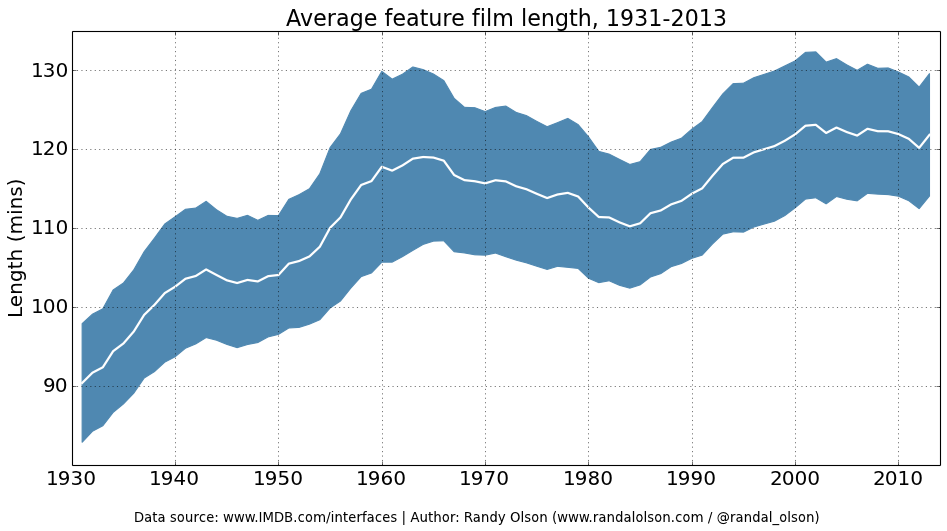Movies aren’t really getting longer, so why does it feel that way?
Increasing viewer exhaustion might say more about our decreasing attention spans

Your support helps us to tell the story
From reproductive rights to climate change to Big Tech, The Independent is on the ground when the story is developing. Whether it's investigating the financials of Elon Musk's pro-Trump PAC or producing our latest documentary, 'The A Word', which shines a light on the American women fighting for reproductive rights, we know how important it is to parse out the facts from the messaging.
At such a critical moment in US history, we need reporters on the ground. Your donation allows us to keep sending journalists to speak to both sides of the story.
The Independent is trusted by Americans across the entire political spectrum. And unlike many other quality news outlets, we choose not to lock Americans out of our reporting and analysis with paywalls. We believe quality journalism should be available to everyone, paid for by those who can afford it.
Your support makes all the difference.After sitting through 151 fairly intolerable minutes of Batman v Superman: Dawn of Justice, you might have found yourself cursing modern films being so damn long as you left the theatre, and it’s a pretty pervasive notion these days.
The data doesn’t support it, however.
Statistician Randy Olson decided to crunch the numbers in 2014, and came up with the following graphs.
Average feature film length, 1931 - 2013 (based on 25 most popular movies on IMDb from each year)

Average feature film length, 1906 - 2013 (based on all feature films in IMDb)

As you can see, film lengths increased drastically between the turn of the 20th century and 1960, as technology improved and filmic narratives were first explored.
They’ve remained fairly steady since then however, apart from a slight dip during the 1970s, which is interesting given the decade is often considered a golden age for film. I think it was David Cronenberg who said a good script should only be 72 pages, and Woody Allen has consistently stuck to an hour-and-a-half-ish run-time, but more concise auteurs such as these who are still operating aside, the two-hour-plus film isn't anything new.
So why the sudden viewer exhaustion?
I think there are a few factors here. Firstly, there’s the shortening of attention spans, brought about by the tide of information we now have to take in every day. Six-second Snapchat videos and two-minute trailers we can easily digest, but two-hour films, by comparison, feel pretty weighty.
Then there’s the move from the theatre to the tablet. Cinemas feel as though they exist outside of time when you’re in them, darkened and blissfully isolating you from the world around you. You submit to a film in a cinema and let it wash over you for however long it takes. With films being increasingly consumed in our homes and on the move though, there are more distractions and, crucially, there’s more pausing, which can make the film-viewing experience protracted.
Finally, let’s consider the genres that the ‘why are they making them so bloody long?’ arguments are generally levelled at. Superhero movies (Batman v Superman et al), Fantasies (the Lord of the Rings trilogy), sci-fis (Star Wars: The Force Awakens)…these tend to be the longest films playing in cinemas, despite often being the most shallow, at least in terms of plot (a Marvel producer earlier this week described their plots as “interchangeable and disposable”).
Interestingly, the slight increase in run times for films is at odds with what is happening in TV, where networks are increasingly choosing miniseries formats (around four to six episodes) over the traditional 13-episode strategy. This isn’t so much an artistic choice however, as merely down to budgetary concerns.
At any rate, if two-hour-twenty-minute films are a struggle to get through without going to the bathroom or checking your phone, you might want to give Swedish director Anders Weberg’s upcoming film Ambiancé a miss, which runs for 30 days. You can watch a seven-hour trailer for it here.
Join our commenting forum
Join thought-provoking conversations, follow other Independent readers and see their replies
Comments